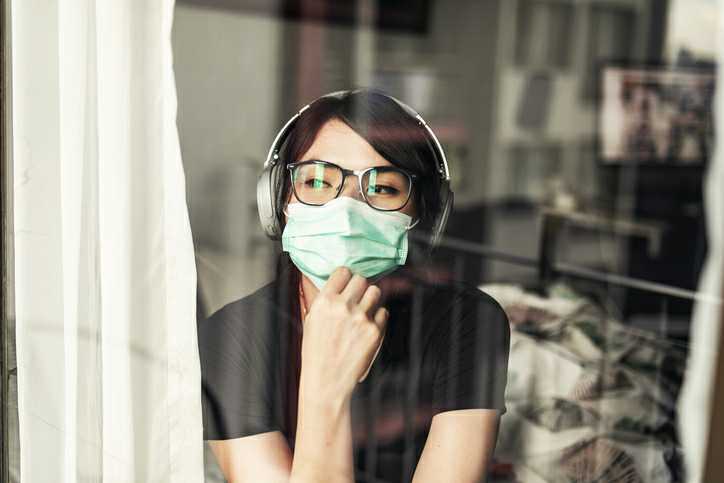Suicide rates may increase amid the COVID-19 pandemic

Over the last two decades, the United States has seen an increase in deaths by suicide. Data from the American Association of Suicidology shows that in 2018 (the latest data), approximately 48,344 people in the U.S. died by suicide. This accounted for 132.4 deaths by suicide per day.
With the suicide rate at an all-time high, the number of deaths by suicide could increase even more due to the coronavirus (COVID-19) pandemic. In order to prevent the spread of the virus, states across the U.S. have issued stay-at-home orders and urged people to adhere to social distancing rules.
While these measures may be effective at reducing the spread of COVID-19, they have an impact on mental health. At this time, hospitals and medical professionals should not only provide medical care to those who may be infected with COVID-19, but they should also provide support for those who have been psychologically and emotionally affected by this pandemic.
The role social distancing plays
The impact of the statewide shutdowns and social distancing rules on mental health should be gaining more scrutiny than it currently is.
Social connections are an absolute necessity for mental health. People who experience suicide ideation may become increasingly withdrawn when a suicide risk arises.
Many people rely on the social structure of our society (social gatherings, religious services, and frequent connections with friends and loved ones) to maintain psychological and emotional health.
According to a 2016 study published in the JAMA Network, weekly religious service attendance was linked to a 5-fold reduction in suicide from 1996-2010.
The term “social distancing” gives people the impression that they can’t stay connected. While the media and lawmakers push this term to encourage safety, it’s having an adverse effect on people’s mental health. Until we get through this pandemic, we should focus more on physical distancing while maintaining healthy social connections.
Job loss and economic stress
As a result of the state shutdowns and social distancing rules, many Americans have been temporarily placed out of work. Some have been able to obtain unemployment benefits, but many others are still waiting for financial relief.
The COVID-19 pandemic has created a lot of economic uncertainty. Not only are millions of people out of work, we’re still not sure if some jobs will ever return. Furthermore, we’re not sure if we will see another wave of shutdowns in the coming fall and winter.
The economy has a significant impact on mental health. Several studies have found a link between economic recessions and increased rates of death by suicide, according to the World Journal of Psychiatry.
Barriers to mental health treatment
Our medical system has made COVID-19 patients the number one priority. Those whose mental health is impacted by the pandemic may not be able to receive adequate treatment, especially if they don’t have an appointment scheduled. As a result, we’ve become focused on saving some lives while ignoring others.
If our medical system is serious about saving lives, then they need to make mental health a priority during this time. The COVID-19 pandemic isn’t only affecting people who suffer from mental health issues. It’s effecting everyone. That means everyone should have access to mental health support, either at a physical location or remotely.
Tele-mental health services may help many people get through this pandemic; this may be a silver lining to the delivery of mental health services. Those who are at risk of death by suicide need prompt services. When hospitals and other medical facilities fail to provide treatment to someone who is at risk of suicide, they should be held accountable.
Tele-mental health can be quicker and timely help without the need of driving, finding a place to park and other anxiety producing challenges. Health providers may fear litigation for not providing in-person care; they shouldn’t. What they should do is document why they are selecting Tele-Mental health care instead of person to person.
If you or a loved one was denied suicide prevention treatment which led to an attempted suicide, it’s critical that you discuss this matter with an experienced suicide lawyer. At the Law Offices of Skip Simpson, we agree that providing medical treatment to those suffering from COVID-19 is important, but medical professionals also have an obligation to treat those who are at risks of death by suicide.
Our attorneys are dedicated to investigating suicide cases and helping victims and families seek justice. To find out how we can help you, contact our law office online or call us at (214) 618-8222. We offer free and confidential case evaluations.




